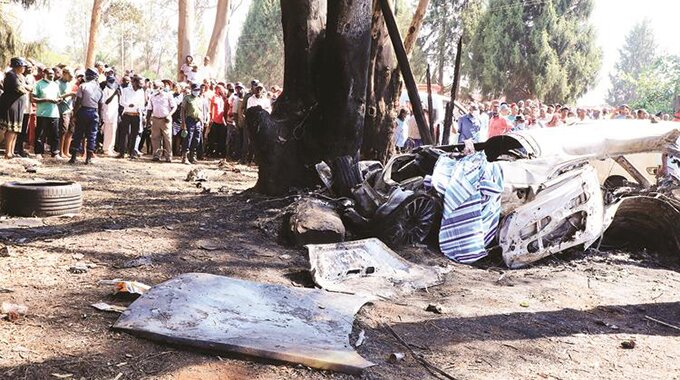It is early morning on Saturday as dark clouds threatened light showers, and possibly a heavy downpour. Dressed in dirty and torn garments, Charlton Chirenje and his three brothers head for the streets for their daily hustle.
BY TINOTENDA SAMUKANGE
They are in the business of collecting empty plastic bottles and disposed leftovers from dumping sites in some of Harare’s suburbs. They use some of the garbage to brew an illegal traditional distilled beverage called kachasu, which they sell in their neighbourhood of Dzivarasekwa and other surrounding suburbs to imbibers who can no longer afford formally-brewed brands.
Kachasu is an illegal traditional beverage common in Zambia, Zimbabwe, the Democratic Republic of Congo and Malawi where it is consumed mainly in rural parts and poor urban suburbs.
It is normally brewed from maize, though finger millet and various fruits like banana peels can also be used. The process involves adding brewers’ yeast together with the carbohydrate sources such as maize husks to warm water and heating the mixture for a few minutes and then distilling it after it has fully fermented.
Advertisement
Chirenje told NewsDay that they dress like vagrants or insane people to attract public empathy for food or clothes and also to disguise their identity from family and friends as they go about their daily business.
As he scouts for empty plastic bottles something unusual happens, he finds a sealed black plastic bag.
It turns out to be a disposed 2kg chicken that was putrid, probably thrown away because of the incessant power cuts that have become a daily routine in Zimbabwe.
The quartet wastes no time to set the fire at the centre of the dumping site in Kuwadzana Extension. They appeared well-equipped with their cooking utensils — a pot, a bottle of water and salt ready to make their main meal of the day.
When conducting their daily hustle, the Chirenjes cannot afford a meal or anything decent to put in their stomachs. So throughout the day, they have to make do with whatever discarded leftovers they may come across in either bins or dumping sites as long as its palatable.
“If we get selective of what to eat, it means we have to spend the whole day without eating anything as food has become very expensive. We are trying to make ends meet so that we can at least feed our families,” Charlton said.
The World Food Programme on New Year’s eve said it plans to feed at least four million of Zimbabwe’s estimated eight million hungry people this year, but said the international community has not raised the money yet.
“We wake up around 3am, every Saturday because we know council normally collects refuse on this day so most households put their bins outside the gates and it is this time that we move around searching for empty plastic bottles and leftovers. So far we have covered parts of Kuwadzana and probably by midday we might be heading towards Whitehouse and Whitecliff areas” Charlton said.
With the prevailing harsh economic situation and high unemployment rate most youths, men, women and children are left with no option, but to engage in the informal sector for survival no matter how dangerous or hazardous it may be.
The quartet seemed unconcerned that they were consuming contaminated food that could have long-term effects on their health, but rather believe that God was on their side and would continue to protect them as long as they are still alive.
Advertisement
“We have survived similar hard times before, God is for the poor and he will not leave us to starve. You don’t know what our friends are eating, some are eating dogs as we speak. We are so lucky we picked a chicken. It just needs proper boiling so that we kill all the germs.”

“I have a wife and five children. My eldest son is 22 years old, he works as a car park guard in Dzivarasekwa Extension earning about $20 per day. My wife also collects bottles with us, but today we left her as she is the one running the brewery and sales while we are moving in search of more bottles” Charlton added.
The USAID-funded Famine Early Warning Network System, or Fewsnet in December said scorched Zimbabwe looks set to continue being barked into 2020 in the wake of another devastating drought. And if that happens it will leave the poverty-stricken Zimbabweans scratching for food until at least March 2021, and with about 90% adults outside formal work, most people face poverty.
“We have to keep moving and searching for more bottles despite the threatening rains. This year doesn’t look good in every aspect. We couldn’t afford maize seed, but we tried mapfunde (sorghum) hopefully by the beginning of February we can also gamble with sweet potatoes” Charlton said.
The elder Chirenje brother added: “We brew about 60 litres of kachasu per day and sell an average of 20 litres per day. A pint of kachasu is 500ml. We sell it for $10 each, that means we get about $400 in cash per day. We then convert that money into EcoCash at a premium of 30% and we get about $520.
“Since we stay at the same compound, we cook in one pot and we share everything we eat. But on better days, we can convert our cash into EcoCash so that each person can get at least $130 as pocket money for their personal use” he said.
To people who have lost hope in government, Charlton and his brothers seem neither bothered nor affected by the current political tussle.
According to Fewsnet’s November report, “the persisting poor macro-economic environment continues to impact livelihoods and remains a key driver of the near-record levels of rural and urban food insecurity. The high parallel market exchange rates for foreign currency still largely influence the pricing of most goods and services”.
– NEWSDAY








